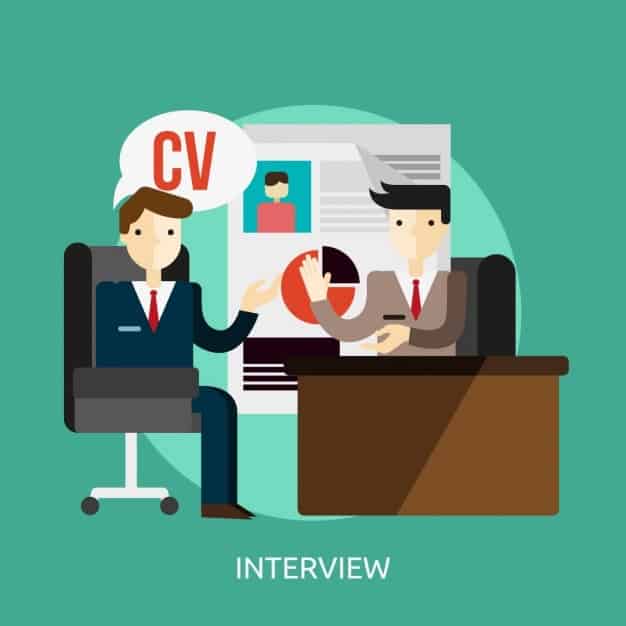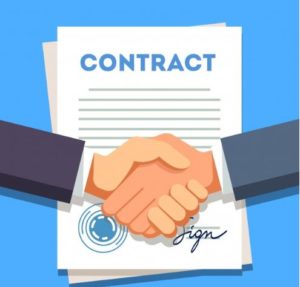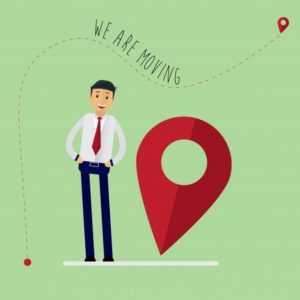48 COMMON JOB INTERVIEW QUESTIONS AND HOW TO ANSWER THEM
How To Ace Any Interview
Tips on 48 Common Job Interview Questions &
How To Answer Them

Did you know that on an average, only one in six candidates who apply for the job, are called for the interview?
And how many out of those few will get the job? Only one. With the scenario being so competitive, you have to give your best for the interview and stand apart. After all, your years of hard work of building your profile and going that extra mile must pay off.

The initial handshake, your poise and confidence and your body language matter in those first 7 minutes. But, the average interview goes on for at least 40 minutes.
How do you prepare yourself then for such a long duration of time?
Nothing less than a thorough preparation is needed to sail through the interview smoothly and hence, it is imperative that you are aware of all the important questions that you might be asked.
You see, an interviewer expects nothing but the best candidate for the role. With the advent of technology, all the required information to ace a job interview is available on the tips of your fingertips. Effectively, you are expected to have gone through the important questions.

Hence, we have curated this full-fledged article on 48 important questions that you might be asked during an interview, where each question has 4 subsections –
- Why is this question asked,
- Tips on – How to approach that particular question,
- A sample answer for the question to give you a reference point,
- And finally 2-3 additional links to help you prepare for the answer.
Invest just 5-10 minutes reading this page, and we guarantee that this investment will only bring fruitful results to your professional career.
Let’s get started!!
1
What are your strengths?
Why is this question asked?
The question serves as a yardstick for evaluating your aptitude for the vacancy. Your response to this question will help the interviewer understand if your strengths align with the company’s requirements for the job. For instance, let’s say you have done Masters in Finance, then a good answer would showcase your proficiency with financial tools and techniques as well. Also, the interviewer is looking for an answer that shows that you’re both, self-aware and confident.
A seasoned admissions consultant can help you do just that.
Tips on how to answer this question:
This question is easy if approached diligently. The ideal answer would include your unique abilities that make you stand out as a candidate for the job. Make sure you back your talents with specific examples.
In giving examples to justify the “what are your strengths” answer, the following should be considered:
- Your greatest strength is usually the specific aptitude required for the position.
- Your strengths set you apart from other candidates.
- Your excellent communication skills are clearly demonstrated in the response.
A seasoned admissions consultant can help you do just that.
Good Answer:
I have a strong work ethic and excellent writing skills. When I’m working on a project, I don’t just try to meet the deadlines. I make sure that my work is completed way ahead of schedule. During my stint at my earlier job, I was even awarded a bonus for completing two important projects one week ahead of time.
I have a strong attention to detail when it comes to my writing skills. Having worked as a content writer for around 3 years, I have experience in writing for various publications where I had to follow their strict deadlines while making sure that my work was up to the mark.
References
- https://uptowork.com/blog/what-are-your-strengths
- https://www.thebalance.com/what-is-your-greatest-strength-2061282
2
What are your weaknesses?
Why is this question asked?
Recruiters prefer hiring professionals that are always ready to learn new aspects, and improve their aptitude. You shouldn’t deny about having real weaknesses. But make sure that the weaknesses you mention don’t interfere with the responsibilities of the job in question.
Also, while mentioning your weaknesses include details on how you’re taking steps on correcting that weakness.
A seasoned admissions consultant can help you do just that.
Tips on how to answer this question:
It is advisable that you demonstrate honesty during the interview session by not being shy to admit your weaknesses. Make sure the mentioned weakness provides no serious drawback to the target position.
Don’t : Never tell an interviewer” I have no weaknesses.”It is a sign of dishonesty, and may be the reason why you may not get selected. Recruiters have stringent rules on dishonesty.
Most interviewers are interested in you demonstrating the ability, and zeal to minimize your weaknesses. It is all about self improvement! Mention activities you may have taken to become a better you.
Good Answer:
I believe I’ve issues with telling a “no” to people. Hence, when my supervisors give me work, even though I already have my hands full, I tend to take up extra projects, which has affected my efficiency a few times. When this happened, I quickly analysed the situation and made efforts the next time to take on a few projects at a time and give it my best. I found out that, with few projects in my hand, I could complete the projects faster.
References
- https://uptowork.com/blog/what-is-your-greatest-weakness
- https://www.themuse.com/advice/the-best-way-to-answer-whats-your-biggest-weakness
3
Discuss your resume.
Why is this question asked?
The interviewer will ask this question to judge your ability to effectively communicate your achievements, which will determine if you made a favorable impression or not.
A seasoned admissions consultant can help you do just that.
Tips on how to answer this question:
You should concentrate on mentioning accomplishments and projects you have carried out in the past, which includes your college level achievements. The interviewer does not expect a boring repetition of your resume. You should selectively describe portions of the resume that are most relevant to the job offer. The employer seeks to see the amount of value you can add to the company. Make sure your answer demonstrates that..
A seasoned admissions consultant can help you do just that.
Good Answer:
I started gaining interest in marketing when I had set up my own e-commerce store, involved in selling of apparels to youth. With social media marketing, I was able to achieve success and even get return customers to the portal. Seeing my success, I was offered a role of a digital marketer in start-up X. With Facebook advertising and strong social media campaigns, I was able to increase their outreach by 12% in just a span of 60 days. I also worked on various projects, where I had to engage the clients and there was a significant increase in the conversion rate of people who were just a part of the audience, to those who were willing to pay for the company’s services. I believe with these experiences, I can flourish at your company and be a valuable asset.
References
- https://biginterview.com/blog/2013/03/why-do-you-want-to-work-here.html
- https://www.thebalance.com/why-do-you-want-to-work-here-2061292
4
Why are you interested in working for us?
Why is this question asked?
When interviewing prospective employees, employers are eager to determine which candidates really want the job and would invest genuine effort in bettering the company, and who just wants a job, any job, regardless of what the position entails.
Tips on how to answer this question:
This question requires a perfect grasp of the company’s mission, and services. You will need to diligently research on the activities of the organization and use it to provide a suitable answer during the interview session. The quality of your response will be determined by your knowledge of the company. The “About Us” section of the employer’s website would contain valuable information. So don’t forget to check that out.
Also, make sure you explore the company’s LinkedIn page. You can request for information about job requirements by connecting with a HR representative from the company. This will help you to prepare better for the interview.
An appropriate response should showcase an appreciable knowledge of the organization. This implies you must do research to identify specific reasons for wanting to work for the company.
A seasoned admissions consultant can help you do just that.
Good Answer:
Not only is your company’s work environment challenging, but also there are a ton loads of opportunities that I’m excited to start working on. The products that your company develops are one of its kind, and as I’m a product developer myself, it excites me to work in such a dynamic environment. The skills I’m bringing to the table will be a perfect match for the job role you’re offering. Also, your company culture is amazing and I simply love how all your efforts are centered around the betterment of the community.
References
- https://biginterview.com/blog/2013/03/why-do-you-want-to-work-here.html
- https://www.thebalance.com/why-do-you-want-to-work-here-2061292
5
Why do you want to leave your current company?
Why is this question asked?
The question aids the recruiter in determining if the specific job is in line with your personal and professional aspirations.This will enhance the decision-making process.
A seasoned admissions consultant can help you do just that.
Tips on how to answer this question:
Avoid going into the specifics regarding poor management, compensation, poor morale or any other negative aspects of your previous job. Instead, focus your attention to the new job. Demonstrating superb knowledge of the company will help the recruiter appreciate your level of interest in working for the organization. Explain how the new company’s work culture appeals to your strengths and experience and that is why you feel that the position they are offering is a better fit for you than the one you have.
Good Answer:
My previous job helped me develop my technical skills, but right now, the world is in need of leaders with management skills as well. I did not want to restrict myself to just technical responsibilities and want to tread on the management side as well. I believe your company would give me better opportunities for the same. Also, I want to get exposed to different cultures, and as your customer base is diverse, it will help me achieve my personal goals. Due to the lack of these opportunities in my current job, I decided to quit.
References
6
What can you offer us that someone else can’t?
Why is this question asked?
The question helps the recruiter identify your confidence level, and whether you have the required skills which will make you a good fit for the job. Your humility level will be ascertained through this question.
A seasoned admissions consultant can help you do just that.
Tips on how to answer this question:
Mentioning unique attributes instead of general attributes would also help you stand out in the recruitment process. “Avoid sounding too cliche”, says Lisa Baker-King, a San Antonio-based business consultant. Avoid enumerating skills that are common to all professionals such as, “I’m great with people,” “I have a strong work ethic,” or “I have a great attitude,” she says.
Good Answer:
Throughout my career, I’ve always tried to diversify my skills. Though I’ve an engineering background, I have tried to expand my skills by learning whatever interested me, throughout the course of my professional journey. For example, I was fascinated by digital marketing, and went ahead and learnt it. Hence, while developing products, I not only have the technical ability to develop them, I also have the knack to market the developed products, so that they reach the right kind of customers and clients. I believe this is a unique skill set that I’m bringing to the table.
References
- https://www.snagajob.com/resources/video-how-to-explain-unemployment-gaps/
- https://www.livecareer.com/interview/questions/why-was-gap-your-employment-between-date-date
7
Why was there a gap in your employment between these two dates?
Why is this question asked?
This question will help the recruiter determine the effect of the gap period on your skills. Provide an answer that shows that you have been productive during the gap period and that you have worked on some substantial tasks/ project during that period.
A seasoned admissions consultant can help you do just that.
Tips on how to answer this question:
This can be a tricky question that can make or break your case. The following tips would help you in providing a satisfactory answer.
Demonstrate honesty in your answers. This will make the information more natural and believable.
In your explanations ensure that you discard all reasons that can make you unfit for the job.
If possible, apply your reason to the position you are applying for. Spending time building your skill set with non-occupational experience is a great example of this.
Stay cool and expect the best from the recruiters after following the aforementioned guidelines.
Good Answer:
Unfortunately, I met with an accident in that period of time, because of which I had to quit my job. I can never forget how restless I felt during that period of time, because I’m always used to being super active, using my gray cells to constantly innovate. But I also have learnt a lot from that phase. I realised that I am extremely passionate about my work, and no accident can stop me from being mentally active atleast. Hence, I started reading books, and kept a tab on the latest technologies, so I am not out of touch.
References
- https://www.snagajob.com/resources/video-how-to-explain-unemployment-gaps/
- https://www.livecareer.com/interview/questions/why-was-gap-your-employment-between-date-date
8
What are three things your former manager would like you to improve on?
Why is this question asked?
The interviewer is gauging your motivation level towards professional advancement through this question. Showing that you are making progress in your career by enhancing your strengths, and minimizing your weaknesses is what the interviewer wants to see. Interviewers prefer hiring candidates that are willing to transform their weaknesses into strengths.
Tips on how to answer this question:
It’s always a tough task to answer questions based on opinions of someone on you. Take the following points into consideration for a proper response:
Mention both your weaknesses and corresponding steps to improve them.
Try to identify some positive aspects in even the most negative experiences. This would generate a good impression about you.
Give an honest answer on an attribute that your manager would wish that you improve on.
Good Answer:
My former manager would like me to learn to say no, to be more organised in my schedule and to be realistic about my expectations from any project. I have had a problem of taking on much more work than I can handle, which has often left me over burdened. A proper organisation of my schedule was required so that I am aware of how much work I have in my hands. I believe, this is because I have unrealistic expectations from myself, and I need to stop overestimating myself and face the reality that I can handle only a set amount of work at one go. But, I have been working on the same for a couple of months now and I can proudly say that my situation is definitely improving.
References
- https://www.livecareer.com/interview/questions/what-things-your-former-manager-like-you-improve-on
- https://www.forbes.com/sites/lizryan/2016/12/28/how-to-answer-the-question-what-would-your-last-boss-say-about-you/#694fd7a12d55
9
Are you willing to relocate?
Why is this question asked?
Tips on how to answer this question:
Your responses should radiate an appreciable level of passion that would convince the recruiter that you are a perfect fit for the job.
Mention the following points in your response –
Respond with passion about the job regardless of whether or not you are willing to move
Be honest with what you want so as to avoid any problems if you get recruited
If you are willing to relocate, have a clear idea about relocation requirements and limitations.
Good Answer:
I love the city that I live in. Relocating within the city would be no problem at all. If you ask me to relocate to a different city, I don’t think that would be an issue as I believe it would be a good opportunity for me to learn about different kinds of people, and to interact with them.
References
- https://theundercoverrecruiter.com/answer-willing-relocate/
- https://www.livecareer.com/interview/questions/are-you-willing-to-relocate-for-the-job
10
Are you willing to travel?
Why is this question asked?
An interviewer will ask this question to see if you are willing and able to travel as much as the job requires.
Tips on how to answer this question:
Mention your flexibility when it comes to traveling for work reasons. Be as honest as you can. Make sure you understand how much traveling will be expected of you and whether you’re fine with that.
Follow-up with the following set of points to craft your answer better –
- Understand the travel requirements early enough
- Mention your travel limitations
- Clear all your doubts
Once everything is cleared up, mention how you’re aware of all the travel requirements of the job and are totally up for it.
Good Answer:
I would love to travel. In fact, throughout my younger days, I’ve always loved visiting different cities, and as years passed, travel has become a necessity for me. Hence, I would love to travel for work. Having said that, I would need a couple of days advance notice, as I live with my family, and it would take me a couple of days to make some arrangements for then before I leave.
References
- https://www.wayup.com/guide/answer-willing-travel/
- https://www.thebalance.com/how-to-answer-interview-questions-about-travel-2061287
11
Tell me about an accomplishment you are most proud of.
Why is this question asked?
The interviewer wants to comprehend the skills of the applicant by asking this question. The interests & accomplishments of the candidate revealed during the interview will help the interviewer determine if the applicant will add value to the company.
Tips on how to answer this question:
Make sure you provide specific examples of events that were challenging to you and how you successfully resolved them. Come up with a few good examples beforehand that highlights your profile and makes you look like a better fit for the job.
The accomplishment that you choose to describe also gives the interviewer a sense of your background, values and interests. That will help the interviewer determine if your personal values align with that of the company’s.
Good Answer:
When I was posted in Canada for a while, I was a little apprehensive as it was my first time abroad. It took me a while to get adjusted to the people, the culture and the new assignment I was working on. But I took it as a challenge, gave it my best efforts and managed to achieve a positive outcome. My stay in Canada was extended for a few more months by my supervisors as they felt I could achieve even more for the company. The fact that I went out of my comfort zone and reached new heights, makes me extremely proud of this achievement.
References
- https://www.livecareer.com/interview/questions/tell-me-about-an-accomplishment-you-are-most-proud-of
- https://biginterview.com/blog/2017/04/greatest-accomplishment-question.html
12
Tell me about a time you made a mistake.
Why is this question asked?
This question seeks to see how you react to negative circumstances. This helps the company ascertain your maturity level as well as your versatility.
Tips on how to answer this question:
The first thing is to do is to maintain a high level of confidence in telling your story. Make sure you mention lessons learned from every tough situation and how it has shaped you into a better person.
Mention how you –
- Don’t give up ever.
- Are responsible for your actions instead of blaming other people.
- Demonstrate the attributes of a winner in the tests of life
Good Answer:
When I got promoted to a managerial post at my earlier company, I tried to do everything by myself, from handling day-to-day operations to making the big sales calls. Unfortunately, that didn’t go as planned and I wasn’t performing to my full potential as I was always busy with something or the other and couldn’t focus on the major tasks at hand. Later, I realised my mistake and started delegating tasks effectively.
References
- https://www.monster.com/career-advice/article/how-to-answer-job-interview-question-when-did-do-something-wrong-0922
- https://www.themuse.com/advice/3-rules-that-guarantee-youll-nail-the-answer-to-tell-me-about-a-time-you-made-a-mistake
13
What is your dream job?
Why is this question asked?
This is to get a clear idea of what you are passionate about.This helps the interview understand your driving force and how useful it can be to the organization’s success.The interview also seeks to know if you will be satisfied with the job offer.
Tips on how to answer this question:
Describe your dream job bearing in mind the description of the target job. The employer needs to see you fit that job description for him/her to hire you.
Look through the job requirements, to find and mention what you like most about the new job. You can then mention your present skills and how you hope to acquire the skills you always wanted to have, while working in the new job.
Additional tips –
- Tell them about the kind of work environment that appeals most to you. Mention how it resonates to their company culture.
- Describe the values you prefer in an ideal career and how you hope to receive it there.
Good Answer:
While my passion would always be in programming and developing products, I would love to give back to the society that I live in, through the work that I do. I would like to develop products which would help the society move forward. That would be my dream job.
References
14
How did you hear about this position?
Why is this question asked?
Interviewers ask this question to determine whether someone is an active or passive job seeker. They prefer applicants who show eagerness and display a genuine interest in the job over some lukewarm individual.
Tips on how to answer this question:
Depending on where you heard about the position, your answer might change. None the less, the following points should be considered while responding to this question:
Make sure you mention the source of your job offer and the appreciable attributes that attracted you to apply for the role.
Explain why you think you are a perfect fit for the position.
Demonstrate your passion and willingness to take up the job if selected.
Good Answer:
I had been looking for a change in job for quite some time. Hence, I was on the lookout for exciting job offers on LinkedIn. LinkedIn is the one-stop destination for professionals now, and that is where I found about this position after I had keyed in my skills and searched for ‘Digital Marketing Associate jobs’. It meets all the expectation that I had regarding my next job and I’m happy I was able to land an interview here.
References
- https://careersidekick.com/how-did-you-hear-about-this-position-answer/
- https://www.livecareer.com/interview/questions/how-did-you-hear-about-this-position
15
What would you accomplish in the first 30/60/90 days on the job?
Why is this question asked?
The interviewer wants to figure out if you understand the duties of this job and determine if you will perform them well. The question also seeks to know how compatible you are with the company’s vision for the job and whether you’re a proactive person who has an action plan in place.
Tips on how to answer this question:
Draft an outline on what you’re planning to do each month once you get the job. Figure out what you will be doing at your job and make a plan for all the things you’re planning to accomplish during that initial time period. If possible, stick to quantifiable results.
Good Answer:
In the initial few days, I would want to focus on getting to know the team well. I believe that great ideas originate in a great team. Hence, the first few days would be spent on understanding the team dynamics. In the first 30 days, I would understand the previous projects and analyse the current projects in hand. By 60 days, I would prioritize on the pending projects to be completed and also to identify new areas where newer projects could be developed. By 90 days, I would focus on the growth of the team and implement new strategies to increase the customer base by at least twice the number.
References
- https://www.wayup.com/guide/answer-accomplish-first-306090-days-job/
- https://www.livecareer.com/interview/questions/what-you-look-accomplish-first-30-days-60-days-90-days
16
Where do you see yourself in 5 years? 10 years?
Why is this question asked?
This question is widely asked in several interview sessions of major multinationals. By asking you this question, the interviewer wants to figure out your short term & long term goals, which in turn will determine the length of time you can be expected to stay there.
Tips on how to answer this question:
Frame your response in such a way that the interviewer feels that you value this job and that receiving this job will be instrumental in terms of your career growth. Make sure your response portrays an appreciable degree of honesty. Also, don’t be vague while answering this question as the interviewer might think you’re not that invested in the position.
The following tips will guide you in your response:
- Outline a Career Path
- Showcase Your Interest in This Job
- Mention Your Career Improvement Plan
Good Answer:
Well, I’m really excited to be handling the marketing side of a few products in your company. In a few years down the line, I would like to see myself heading the marketing campaigns of not just one product, but many diverse products in your company, hence increasing the outreach of the products. I would love to expand to other verticals and see myself being an expert in product marketing and brand management.
References
- https://www.livecareer.com/interview/questions/discuss-your-resume
- https://www.thebalance.com/how-to-answer-job-interview-questions-about-your-resume-2060993
17
Discuss your educational background.
Why is this question asked?
The interviewer will ask you this question to better understand your academic background, and determine if your academic courses will help you to function better in the new job.
Tips on how to answer this question:
Mention the courses you took up in college that boosts your qualification for the applied position. Be very selective in your choice of courses you wish to disclose to the employer. The following should be considered in addressing this question.
Describe specific skills that make you a perfect fit for the job.
Demonstrate an appreciable level of positivity in solving real-world problems associated with the company. Showcase an unparalleled passion for using your academic skills for the growth of the company.
Mention an anecdote that demonstrates how a particular course you did, helped you successfully finish a project at the previous employer.
Good Answer:
Throughout my education, I have always looked to learn beyond what is being taught in the curriculum. I studied computer software and was taught a lot of programming languages in college. I didn’t want to restrict myself in just learning the languages. I wanted to apply what I learnt in the form of mini projects. I believe this expanded my practical sense of knowledge. Besides, there were so many new technologies blooming while I was studying, like Big Data, Machine Learning etc. I enrolled myself in online courses just to get an idea about what they are all about. I also went ahead and completed all the projects related to them in the courses. Hence, I have enough practical knowledge to back up my theoretical knowledge.
References
1. https://www.livecareer.com/interview/questions/discuss-your-educational-background
18
Describe yourself.
Why is this question asked?
Describing yourself will help the interviewer determine if you fit the work culture of the company and are a good fit for the position. What you think about yourself is also valuable to the employer since it creates a first impression about your personality.
Tips on how to answer this question:
Be frank with your answer. You can use the job description as a perfect guide for your response and answer in a way to showcase how you’re the right fit for the job. The recruiter seeks honesty, so be straightforward with your answer. Also, mention your achievements and how they were possible because of your unique strengths. You can also talk about your likes and dislike but make sure you avoid any sensitive topics.
Good Answer:
I’m a creative thinker as I like to explore alternative solutions to problems. My optimistic nature has helped me get through tough times before, as I never give up, no matter how tough situations get. But, that doesn’t mean I am unrealistic. I know to draw that line between what is possible and what is not, and accordingly take actions. My colleagues would describe as a great team player as I always put the team’s interests first. I have also helped my team bond well, with a lot of team building activities. I think with these qualities, I would fit in easily with your work culture.
References
1.https://www.thebalance.com/job-interview-question-how-would-you-describe-yourself-2064058
19
Tell me how you handled a difficult situation.
Why is this question asked?
The question helps the interviewer evaluate your response to tricky or uneasy questions. This in turn will help them forsee how you will handle unexpected challenges in the future.
Tips on how to answer this question:
Your answer should radiate problem-solving skills that can impress the interviewer.
Remember to discuss your critical thinking abilities and your techniques in managing problems. Also, mention an example where you had to handle a difficult situation and how you tactfully resolved it.
Good Answer:
The first thing I do, when a difficult situation arises, is that I acknowledge that there is a problem which we have to get through. For example, when the software development of our new product was stalled because there were a lot of unexpected bugs in it, I knew that I needed to step up as my team relied on me. I coordinated the team which managed to get the schedule back on track. We were able to successfully troubleshoot the issues and solve the problems, within a very short period of time, and without completely burning out our team. I was able to do that by proposing and implementing testing protocol at every stage of the development process. The final result was such that, we were able to launch a near perfect finished product which hardly received any customer complaints.
References
- https://www.livecareer.com/interview/questions/tell-me-how-you-handled-a-difficult-situation
- https://www.thebalance.com/job-interview-question-how-did-you-handle-a-challenge-2061243
20
Why should we hire you?
Why is this question asked?
The interviewer wants you to convince him why you are the perfect fit for the job. This question seeks to squeeze out valuable information about the personality of the candidate applying for the position.
Tips on how to answer this question:
Convince the interviewer by telling him about –
Your ability to carry out quality work and have noteworthy outcomes.
Your exceptional teamwork aptitude which will make the organization better.
Your multidisciplinary and unique skills make you the perfect applicant for the job.
Give examples for all the above points mentioned.
Also, talk about the benefits of recruiting you and how it would be an unregrettable decision for the company.
Good Answer:
I have top-notch technical skills and I believe I’d be an asset to the office. My skill set is a good mixture of excellent programming skills, backed up with good management skills. But this hasn’t deterred me from learning new skills. I have been constantly honing my skills by doing MOOCs and attending workshops. Which is why I feel I would be an excellent team player in both contributing to team technically, as well as managing the dynamics of the team. In this company, where developing a technically sound product is as important as communicating with the clients, I believe I will be able to bring the apt skills to the table. Hence, I seem to be a perfect match for what you’re looking for.
References
- https://biginterview.com/blog/2013/04/why-should-we-hire-you.html
- https://www.thebalance.com/why-should-we-hire-you-best-answers-2061261
21
Why are you looking for a new job?
Why is this question asked?
This question is asked to know if you have left your old job for all the right reasons. If you were looking for better opportunities or a more challenging work environment, then this is the right place to talk about it.
Tips on how to answer this question:
While it might be very tempting to talk badly about your ex-boss and all the problems you had to deal with, refrain from doing so. Your interviewer might take it as a warning signal and wonder if you’re the problem.
Instead have a planned, authentic answer that the employer would be able to relate to. Talk about looking for a new challenge in your career, learning a new industry or focus area, or needing to find a new job because you’re relocating—those are honest, relatable answers.
Good Answer:
I feel I am ready to take the plunge to newer and more diverse opportunities. My old company only dealt with a limited number of clients, confined to a particular region. I would love to push my boundaries here and would love to interact with people from different cultures and understand the work dynamics related to multicultural audiences. I feel a global exposure is required in this generation and I can’t wait to unleash my potential.
References
1. https://www.monster.com/career-advice/article/how-to-answer-why-do-i-want-to-change-jobs
22
Would you work holidays/weekends?
Why is this question asked?
This is asked to determine your flexibility when it comes to juggling work & personal life and whether you are focussed on completing the tasks assigned to you. This is an important question, and depending on your answer, can make or break your case.
Tips on how to answer this question:
The recruiter wants to see how committed and passionate you are about the position you are applying for. While saying an outright no will clearly not work in your favor, make sure you don’t lie either.
When answering this question, here are a few things you should keep in mind –
- Demonstrate an unwavering commitment in achieving excellence in the organization.Mention that you might be around on a few holidays/weekends if the job really requires it. But you won’t be able to do it 24/7.
- Also mention that you don’t mind working on the weekends, as long as you know the schedule as far in advance as possible.
Good Answer:
Night and weekends are the only time I can spend with my family and that’s very important to me. But, having said that, I understand the pressures that this job has and my primary goal will always be to achieving the required target within the stipulated time. I would try my best to finish the assigned work on weekdays, and if need be, I am flexible to work on the weekends occasionally, when there is due work.
References
- https://www.wayup.com/guide/answer-work-holidays-andor-weekends/
- https://www.thebalance.com/how-to-answer-interview-questions-about-shift-work-2063923
23
How would you deal with an angry or an irated customer?
Why is this question asked?
This question seeks to know how you will react in an angry or uncomfortable confrontation during your working hours. Would you demonstrate professionalism through an appreciable self control or would you prefer to get into a fight?
Mentioning how you will handle the issue will help the interviewer determine if you’re right for the role or not.
Tips on how to answer this question:
The employer wants to know the way you’ll handle an annoying customer. Because even a minor mistake on your side while interacting with an angry customer can cause huge losses to the company.
Here are some methods and steps to help you devise a good response to the question:
- Be patient and hear the customer’s tasks, claims, complaints etc
- Repeat back what you’ve heard
- Don’t buy time with the hold button, if you are on call.
- Take action
Good Answer:
For the sake of clarity and efficiency, I would first ask the customer to explain the problem to ensure I’m the right person to assist them. There are going to be times when you simply don’t have the knowledge or expertise to resolve a problem, and it’s better to recognize that early on than to waste both the customer’s and my valuable time. If the customer is irritated, I would be accommodating and try my best to come up with solutions.
References
24
What are your salary requirements?
Why is this question asked?
By asking this question, the interviewers want to know if they can afford you before they invest time and resources courting you to come to work for them.
Tips on how to answer this question:
Be careful while answering questions concerning salary ranges. This is a tricky question which must be approached with utmost caution. Make sure your salary range is neither too high nor too low especially if you are an entry-level professional.
If you are in an interview, you could try to answer the question in a diligent and broad manner, such as: “My salary expectations are in line with my experience and qualifications.” Or “If this is the right job for me, I am sure we can come to an agreement on salary.” Besides, it is advisable to have a particular salary in mind before coming for the interview.
There are many websites that offer salary averages and estimates. Sites like Salary.com, Payscale.com, and Indeed.com all offer comparable data. If you have more time, try to look at more than one source you may get a better perspective of range.
Good Answer:
I would like my remuneration to be in line with the amount and kind of work that I am involved in. Usually, around an amount of $$$ to $$$ is what I would be expecting. I am sure I will be a great fit for the company and do justice to the role I am assigned to.
References
- https://www.thebalance.com/interview-questions-about-your-salary-expectations-2061235
- https://biginterview.com/blog/2015/10/salary-expectations.html
25
Give a time when you went above and beyond the requirements for a project
Why is this question asked?
When asking for an example of something, interviewers generally are trying to confirm that you have that particular quality. They may be less interested in your actual example, but they are interested in how confidently you are able to demonstrate this ability in yourself.
Tips on how to answer this question:
Mention your specific and unique attributes in a concise manner that helped you successfully complete the project. If you select hard work as an attribute, makes sure you explain the reason behind it. The following ideas will guide you in your answers:
Make sure your answer is directed at the quality asked in the question. Lengthy and boring explanations will not help your case.
It will be especially effective if your example is from a working experience in a related field.
Good Answer:
At my previous job, I had the responsibility of developing a product based on the given sample statistics. But, I realised that to improve the efficiency of the product, a larger data set is required to achieve accuracy. Hence, I took it upon myself to collect more data and compute the statistics according to the larger data set and then began developing the product. This was greatly appreciated by my seniors, as I not only improved the efficiency of the product, but also finished developing it within the allotted time.
References
- https://www.livecareer.com/interview/questions/give-time-you-went-above-beyond-requirements-project
- https://collegegrad.com/tough-interview-questions/tell-me-about-a-time-when-you-went-above-and-beyond
26
Who are our competitors?
Why is this question asked?
In today’s day and age, competition in every industry is fierce and hiring managers look for candidates who are aware of this fierce competition. Not knowing the answers for this question would naturally deem you unfit as a simple google search would yield the desired results. Hence, prepare well for this question.
Tips on how to answer this question:
First off, you must know the ins and outs of the company you are applying to. Research about their growth and their current products/services. Next, you must do a detailed study of their competitors as well so you know how the company can tackle the competition. Bring your analysis to the table, rather than reporting the facts. Talk about how you see the competition and bring up some valuable insights. You could also talk how the company’s strategies are better as compared to the rest.
Good Answer:
I believe the primary competitor would be company X, as they have established themselves in this field for years together. They have a wider client base. But I feel, your company has fresh energy with innovative marketing techniques, which I’m sure will help take the company ahead of X in no time.
References
- https://everydayinterviewtips.com/interview-question-what-do-you-know-about-our-competitors/
- https://www.cvcentre.co.uk/careers-advice/interview-preparation-help/how-do-you-feel-we-compare-to-our-competitors
27
Why is this question asked?
Every interviewee talks about only the positives of his/her professional life so as to portray a clean picture. But, the interviewer is more interested in that point of your life where you faltered a little and how you tried to come out of your failures. Also, they are keen to know what you learnt from that failure and how you have moulded your life accordingly.
Tips on how to answer this question:
It is always best to talk about a particular situation and emphasis on the details of that failure. For example, you could talk about what the circumstance exactly was, what you tried to do and what you did once you got to know that you were wrong in your judgement. Keep the tone positive and talk how you rectified your mistakes. Emphasis on what you learnt from that failure, which has helped you avoid make the same mistake again later on.
Good Answer:
I believe my biggest failure was when the team that I was a part of couldn’t succeed in completing Project A. The primary problem was that the whole team was complacent as we thought it was an easy target to achieve. But, the project cost us a lot, when it didn’t work out. I realised that we didn’t go that extra mile to achieve what we wanted to. Henceforth, I have always made sure that I remain alert and keep my eyes open to the realities of a situation. In fact, on our next project, though the team was putting the right efforts, I knew the team had the potential to achieve that wow factor. I stepped up and motivated my teammates to push even harder and this project got us esteemed recognition in the company.
References
28
Why is this question asked?
Every company has a certain work culture and hiring managers want to be sure that whatever motivates you is in line with the overall persona of the company. Interviewers are looking to know what drove you to have the kind of profile that you have and this will help them judge if you are the right fit for the company.
Tips on how to answer this question:
Be as honest as possible. You could mention a few circumstances where you gave your best and try to decipher what made you so driven to achieve the kind of goals that you did. Never exaggerate and do not be vague about your motivation. For example, if developing a product with a team is your passion, then you could talk about how your past experiences where you achieved wonders with team work. Do remember that whatever factors maybe your motivation, but it is important that you elucidate them with real life examples.
Good Answer:
To keep learning new things is something that motivates me greatly. I realised this early on in my career, where I used to rack my brains to come up with innovative solutions to problems and not just take the conventional route. What this meant for me is that I was developing problem solving skills and not rely on textbook solutions. This helped me to transform into a Solution Engineer, where my out of the box solutions, not only improved the performance of the system, but also helped improve its efficiency. To know that my solutions are creating a positive impact in the company, motivates me the most.
References
- https://www.thebalance.com/job-interview-question-what-motivates-you-2061272
- https://targetjobs.co.uk/careers-advice/interview-questions/320333-what-motivates-you-tricky-graduate-interview-question
29
Why is this question asked?
Some companies require you to shell out a certain time period of time, and this time frame may differ from day to day and week to week basis. The interviewer wants to know how much time you are ready to dedicate for this job position, so he/she can figure out if you are suitable for the said job. Interviewers are not looking for half hearted people who are not flexible with your schedule. They look for an adaptive nature in potential candidates.
Tips on how to answer this question:
It is important that you do not lie here and say you would be available any time. You can talk about circumstances where you put in more than what was expected out of you to complete a particular project. This way, the interviewer knows that you are adaptive and have shown credibility in the past.
Also, if you are not available on certain hours of the week, due to a valid reason, go ahead and mention that you would be unavailable for those particular hours. But do mention that you are ready to work beyond what is expected out of you on the other days to make up for the time. Overall, keep the tone positive, matured and honest.
Good Answer:
I am available all through the weekdays. But, in this era, as the competition is over the roof, I know that this is a demanding job. Although I would love to spend time on the weekends with my family just to balance things out in life, I am more than willing to go out of my way to meet deadlines. I remember distinctly, in my previous job, our team was running behind a little. Even though we weren’t instructed to work extra shifts as yet, I decided to work on the weekends so as to complete the task on time. Hence, I am flexible enough and always give a priority to completion of tasks on time.
References
- https://www.myperfectresume.com/how-to/interview-tips/whats-your-availability/https://www.cnbc.com/2017/11/03/how-to-answer-the-interview-question-whats-your-availability.html
30
Why is this question asked?
A mentor is someone you are willing to listen to and someone in front of whom you could be brutally honest about your problems. Your attitude towards them is important as gratitude and humility are also important in the job scene. The interviewer wants to know if you were successful in forming this kind of an equation with someone, which will help add positively to your personality.
Tips on how to answer this question:
Choose a person who has been influential in your life and has helped you in your overall development as a person. There is no compulsion that you need to refer to your colleges or your seniors who advise you. You can also go ahead and choose anybody who has really made an impact in your life. Talk about instances where you were stuck or were indecisive and how that mentor guided you, not only professionally, but also in your career goals, productivity etc. Mention how you have become a better person by following their advice and how you hold them in the highest regard.
Good Answer:
Choose a person who has been influential in your life and has helped you in your overall development as a person. There is no compulsion that you need to refer to your colleges or your seniors who advise you. You can also go ahead and choose anybody who has really made an impact in your life. Talk about instances where you were stuck or were indecisive and how that mentor guided you, not only professionally, but also in your career goals, productivity etc. Mention how you have become a better person by following their advice and how you hold them in the highest regard.
References
- https://www.careeraddict.com/answer-who-do-you-consider-your-mentor
- https://www.livecareer.com/interview/questions/whos-your-mentor
31
Why is this question asked?
In the work place, with a lot of different people working towards the same goal, there will be different views and sometimes disagreements do arise. It’s your communication skills that matter here, when disagreements are in the picture. The interviewer is keen to know how you would handle these kinds of situations and also check if your communication skills are on point.
Tips on how to answer this question:
Give an example of a situation which led to the disagreement and mention if you were right or wrong. What matters here is how you put across your views in the disagreement and how you convinced your boss that you were right. If you had been wrong in the disagreement, own up your mistake and explain what you learnt from it. This shows that you have the humility to accept your mistakes and are willing to learn from them.
The trick here is to not sound too proud if you have been proven right in the disagreement, or to not sound defensive if you were wrong in the disagreement.
Good Answer:
It was during a team discussion, where my boss did not want to experiment with new authors, to have articles published in the monthly magazine. I disagreed with him, as I had seen the talent the fresh minds had, and we could afford to take that leap of faith.
I showed the new authors’ work, which convinced my boss. He agreed to my suggestions, and gave a green signal to include two new authors in the monthly magazine. This proved to be a huge success, as the new authors were already internet sensations, which drew us a much larger crowd.
References
32
Why is this question asked?
With the growing demands of every industry, it is natural that one experiences pressure and stress in the workplace. To manage it well and push through is what matters the most. The interviewer is interested in finding out exactly this as to what your approach is to handle pressure at the workplace and still be productive at the end of the day.
Tips on how to answer this question:
Giving real life examples always works. Talk about situations in the past where you managed a tough situation. For example, if there was work overload, talk about how you recognised that this work is crucial for the betterment of the company and hence put the company’s interests first rather than your personal work pressure. You could probably say that you created a schedule and stuck to it to achieve results, or talk as to how you did a little extra work every day so you had time for yourself as well as you did justice for your position.
Good Answer:
No matter how much one tries, with the job scenes getting more demanding, one does feel stressful at some point or the other. Over the years, I have learnt to transform all the stress into efficient performance. I remember, at my previous job, the stress of giving my best in every project drove me to complete the tasks well in advance. To balance things out, I also involve myself in outdoor activities like tennis and badminton regularly so that I’m mentally and physically fit to handle any pressure.
References
- https://www.thebalance.com/how-do-you-handle-stress-2061246
- https://www.themuse.com/advice/3-ways-youre-messing-up-the-answer-to-how-do-you-deal-with-stressful-situations
33
Why is this question asked?
Remember that the interviewer is not just looking for a name as an answer. He/she wants to know if you have researched well about the company. This is the kind of prep that is expected out of a potential candidate.
Tips on how to answer this question:
Always research about the company well enough before the interview. A simple Google search will give you the name of the CEO of the company, but do not stop there yet. Go through the social profiles of the CEO and higher authorities and see what kind of work they are involved off late. See what kind of articles they have shared and mention about them in the interview. You could also talk about some similarities that you found in yourself and the CEO. (Maybe both of you are involved in a lot of social causes or endorse the same causes). Talk about their education and early life as well. This shows that you are serious about your job in the company and are determined to make it through the interview and come out successful.
Good Answer:
The CEO is X. When I was researching about her, I found out that she spent a great deal of time in many different countries, networking everywhere she goes. I found this to be inspiring as I too have visited a few countries for work purposes and loved getting to know about different cultures. I’m looking forward to meeting her and knowing more about her experiences.
References
- https://www.livecareer.com/interview/questions/what-is-the-name-of-our-ceo
- https://www.cnbc.com/2017/10/26/how-to-answer-the-interview-question-what-is-the-name-of-our-ceo.html
34
Why is this question asked?
Envisioning the future is equally important as is staying in the present and working hard. The interviewer wants to know what your career goals are to know where you want to head in the coming years and whether you have been taking steps to go closer towards your goals.
Tips on how to answer this question:
Approach this question step by step. Every long term goal must be an ordered set of short term goals which you can achieve in the near future. Talk about how you are already in the process of achieving your vision by having completed a couple of short term goals. Task about the lessons learnt in each step so that the interviewer knows that you are a keen observer and learner. Don’t forget to align your goals with your current job position and domain in the industry. Make your goals relevant, realistic and achievable and you must be good to go
Good Answer:
As of now, I would want to work on a project which would give me global exposure. I would love to network with people from different cultural backgrounds and know the work cultures in different parts of the world. Recently I had an opportunity to work in a different branch of the company that I was working for. I quickly jumped in and took on the role as I wanted to experience working with new people. This also helped me move out of my comfort zone. Now, I want to expand my horizons and gain global exposure. On the long term, my focus is to create value in lives of people. I would love to start my own venture some day. Hence, I strive to get as much knowledge as possible so that I can use all of it in my venture.
References
- https://www.thebalance.com/job-interview-questions-about-your-career-goals-2061238
- https://www.livecareer.com/interview/questions/what-are-your-career-goals
35
Why is this question asked?
This question is slightly inclined towards knowing what your values are and what keeps you going and how this has helped you push harder in your past experiences. Knowing about your motivations helps the interviewer analyse if you are in the right track and also check if you make a good fit in the company. Know that, while skills can be developed, motivation comes only from within and that is the most important factor to better yourself on a daily basis.
Tips on how to answer this question:
This is the point in the interview where you can talk about your long term goals in life such as, being the CEO of a company or talking about how you want to start funding projects in your domain or anything that motivates you personally or professionally. Keep in mind that you should talk about something realistic and describe the steps that you have taken that have helped you grow towards your goal.
Avoid all answers that are vague and are not productive enough. Be extremely honest and talk about your goals and inhibitions and how you are working towards overcoming difficulties.
Good Answer:
I enjoy coming up with innovative solutions to problems. The thought of brainstorming within a team, listening to varied ideas from different people and putting it all together to make that perfect picture, drives me to do what I do. There is always a constant scope for learning this way, and this hunger to learn gets me going every morning.
References
36
Why is this question asked?
No matter how good an employee you are, there is always room for improvement and you can always push yourself to be better at your job. This attitude is what is being tested through this question. The interviewer wants to know how you handle praise and criticism and what you do with your direct reports.
Tips on how to answer this question:
Start with the positive things always. Talk about the good things in your report. You must also mention that you try to be consistent and maintain the good parts in your report in the successive days as well. For example, if your reports show that you are an excellent programmer, then talk about how you try to write efficient codes, or read about how you can improve your already good programming skills.
Next, talk about the not so good things in your report. Acknowledge that you do go wrong sometimes. Keep in mind that, the interviewer is interested in knowing what you do with your feedback. Give examples to showcase that you have tried not to make the same mistake twice and that you spend considerable amount of time analysing your reports and always look to improve your productivity at work.
Good Answer:
Well, my direct reports would indicate that I have always been punctual and have always respected deadlines. They would also talk about me being a good team player. Also, my direct reports would show that I’ve tried to put my hand in a lot of projects, which turns out to be a bad decision sometimes. I had been instructed to focus on a limited number of projects so that my potential is fully unleashed for each project. I’ve been constantly working to improve that, while simultaneously maintaining my good qualities constant.
References
- https://www.themuse.com/advice/3-strategies-for-answering-how-would-your-boss-or-coworkers-describe-you
- https://www.livecareer.com/interview/questions/what-would-your-direct-reports-say-about-you
37
Why is this question asked?
Analysing your boss’s strengths and weaknesses in the right way tells a lot about how you analyse others in the team or how you analyse the management of the company that you may be hired in. Talking about the right strengths and weaknesses will give you brownie points. If you talk about any personal grudges against your boss, the interviewer will immediately know that you aren’t professional enough and have not analysed people in the right way.
Tips on how to answer this question:
First, talk about your boss’s strengths. He/she might have been a good leader or an excellent team player. Talking about the strength first sets out a positive tone for your answer.
When it comes to talking about your boss’s weakness, do not, at any cost, talk about any personal issues. Instead, speak about something that can be taken as a well thought out criticism. For example, your boss might have been a great team player, but had difficulties in telling no to people. Or, he/she sets unrealistic expectations or was not good in people management. In any of the above criticisms, make sure to mention how you tried to make the situation better through your inputs.
Stay away from negative tone and always talk about professional matters only.
Good Answer:
My previous supervisor was an amazing team player. He was always reliable and had great communication skills. This was his major strength as he could bring the team together during tough situations. On the flip side, he had set unrealistic expectations from the team, which often used to cause a lot of stress amongst our teammates. But, when he realised that his expectations were unrealistic, he understood the situation and modified the expected outcomes of the project. This is something that I picked up from him- to easily flow into changing circumstances.
References
- https://www.cnbc.com/2017/10/19/how-to-answer-what-are-your-bosss-strengths-and-weaknesses.html
- https://www.livecareer.com/interview/questions/what-were-your-bosses-strengths-weaknesses
38
Why is this question asked?
With this question, the interviewer wants to know if you are aware of your weaknesses or not. Analyzing your own performance through constructive feedback from your boss is important to grow progressively. Being aware of how your boss perceives your performance is crucial.
Tips on how to answer this question:
The safest answer for this would be to talk about something new that you have started to work and how your boss gives inputs from time to time to improve your efficiency. Mention how you have made an improvement with your boss’s advices. Talk about the times where you have discussed the difficulties you faced in the job with your boss and how he/she has helped you grow.
Good Answer:
Unfortunately, I met with an accident in that period of time, because of which I had to quit my job. I can never forget how restless I felt during that period of time, because I’m always used to being super active, using my gray cells to constantly innovate. But I also have learnt a lot from that phase. I realised that I am extremely passionate about my work, and no accident can stop me from being mentally active atleast. Hence, I started reading books, and kept a tab on the latest technologies, so I am not out of touch.
References
- https://everydayinterviewtips.com/common-interview-question-what-would-your-previous-supervisor-say-you-need-to-work-on/
- https://www.qries.com/How-to-answer-If-I-called-your-boss-right-now-and-asked-him-what-is-an-area-that-you-could-improve-on-what-would-he-say-in-an-interview
39
Why is this question asked?
The interviewer does not want you to choose just one and say that you are only a leader. With teamwork being given the utmost importance, the interviewer wants to check if you have qualities of both being a leader and a follower. It is not just enough to always lead, it is also important to listen and follow others for the betterment of the team. Hence, hiring managers want to check if you are capable enough of handling both the roles.
Tips on how to answer this question:
The best answer would be say that you adapt to situations and are both a leader and a follower. Give examples as to how you started off as a team member, but had to step up in the middle of crisis and handle the situation for the team. Also, talk about instances where you had a good team leader and how you followed their instructions, resulting in a good team work.
Mention the importance of good dynamics in the team and how you have excelled in both leading and following. Do remember that you must be firm in your answers and give real life examples to back up your statements.
Good Answer:
I would say I am an excellent team player. There have been situations in the past, where the team leader had faltered and I had taken up the initiative to step up and lead the team to success. When the need arose, I stepped up and did my best for the team. When I was appointed as the team leader myself, I made sure that everybody in the team had a voice and maintained good team dynamics to keep the atmosphere lively. There were times when I was not the team leader and got to be under some excellent leaders and learnt leadership skills from them as well. I followed the team leader’s instructions diligently as she had a clear vision, which resulted in excellent team work.
References
40
Why is this question asked?
This question is an indicator as to whether you take that extra step to improve your knowledge. Reading books, especially the ones which expand your bailiwick indicate that you are aware of where you stand professionally and are willing to take steps to climb up the ladder.
Tips on how to answer this question:
For those who are avid readers, always pick books that are related to your work. Non-fiction, productive books make you sound intelligent and intellectual. Never talk about a book that is not related to productivity or your job per se as it may make you sound unprofessional.
For those who haven’t read books at all, you can deviate a little bit and talk about how you read a professional magazine or catch up on interesting articles in a particular newspaper.
You could end the answer by mentioning what you are planning to read next and talk a bit more about the same. Never lie in this question as, if the interviewer knows even a little about the book names you mentioned, there will be follow up questions.
Good Answer:
The last book that I read was The Difference, which talks about how some people rise despite all odds stacked against them. The author Jean Chatzky, talks how some people have a difference in their approach to their everyday tasks and how this difference makes them stand out from the crowd. I learnt through this book that gratitude is the greatest virtue one can possess and it is always important to read every day to expand your intellectual. I thoroughly enjoyed the book.
References
- https://www.livecareer.com/interview/questions/whats-the-last-book-you-read
- https://everydayinterviewtips.com/surprising-job-interview-question-what-is-the-last-book-you-read/
41
Why is this question asked?
For one to perform well in a demanding job, it is also important that you let your steam off in your free time in the right way. The interviewer wants to know about your hobbies so as to know the other side of your personality. Cultivating a hobby shows dedication and passion towards something that you love and can add a great boost to your chances of getting hired.
Tips on how to answer this question:
Always focus on bringing a positivity to the table. And also, be honest as follow up questions will surely come. For example, if you are an avid baker, then be prepared to answer questions like “How often do you bake?” or “How does baking make you relax?” etc. You could also talk about exercising as your hobby if you have been a health enthusiast over the years.
Do remember that, partying, gambling, clubbing are not the right hobbies to bring up in an interview. Think of a productive hobby and talk about how you have cultivated the same over the years.
Good Answer:
Since the time I was in high school, I have always been an avid baker and this is something I make sure to find time to do on a weekly basis. Every weekend, I try out new recipes. The aroma that fills my kitchen while baking is something that de-stresses me. I have also developed a habit of going to martial art classes to remain fit. Not only has it made me stronger, but has also improved my concentration levels, hence increasing my productivity levels.
References
- https://www.thebalance.com/job-interview-question-what-are-your-hobbies-2060979
- https://www.livecareer.com/interview/questions/what-are-your-hobbies
42
Why is this question asked?
The interviewer wants to know how you handle uncomfortable situations. Also, this question requires a little introspection on your part and can also reflect if you know what your comfort zone is and your willingness to step outside of your comfort zone.
Tips on how to answer this question:
The worst answer would be to say that nothing makes you uncomfortable. Your answer must be a mixture of diplomacy and honesty. Identify something that really makes you uncomfortable, like missing deadlines or mismanagement of things or something that you have handled in the past and overcame. Try to pick a reason that is not too extreme like working on the weekend makes you uncomfortable. Pick a middle answer which does not make the interviewer think that you might be feeling uncomfortable in doing something that is actually a necessity for the company.
Also, mention how you have worked your way through your discomfort and achieved results nevertheless in the past.
Good Answer:
The thought of missing deadlines makes me feel uncomfortable. Since the time I was in college, I always made sure that I submit my work well before the deadline. The same habit has transpired into the work place and I always make sure that my work is finished before the deadlines approach. There were certain times, where the team missed the deadline because of the casual attitude of other team members. I realized that everything does not go according to what we perceive and the team had a discussion to discuss the reasons for the delay and we took steps to ensure that it does not happen again.
References
- https://www.cnbc.com/2017/10/13/how-to-answer-the-interview-question-what-makes-you-uncomfortable.html
- https://www.wayup.com/guide/answer-makes-uncomfortable/
43
Why is this question asked?
There is no role/position which does not require you to portray leadership abilities at some point or the other. Be it any job position, in today’s era, you will need to showcase leadership and decision making abilities. This showcases that you have a well rounded personality. This way, in future, when the company requires a team leader, they know that they can fall back on you, provided that you have answered this question in the right way. Taking up leadership positions always gives you an edge over the others as you will have the golden opportunity to lead a team and showcase how you have the ability to bring out the best in your team members’ performance too.
Tips on how to answer this question:
Remember to make this answer as relevant to your job profile as possible. For example, if you are being hired as a team leader, to lead a team which is working on a software project, mention circumstances in the past of how you have risen to the occasion and have taken up leadership positions and helped the team perform better in achieving better efficiencies with respect to the project. Talk about your effective communication skills and how you are capable of talking to a group which has people from different backgrounds and how your team building skills will make your team members feel comfortable so that everyone has a voice when a decision is being made.
Good Answer:
I remember, at my previous job, when I was assigned to be the team leader, there was a person, who would be reluctant to share his views when we are openly discussing as a team. I went up to him personally and asked him the reason for his silence in team meetings. It turned out that, he was feeling under-confident as he had just joined in. I motivated him and made him believe in himself, as he had some pretty effective solutions to our project. Slowly, there was a positive graph in him and with his inputs, we rapidly improved the performance of our project. The other team members appreciated my extra efforts to make him feel confident, as they felt, everyone, must have a voice in the team.
References
- https://www.livecareer.com/interview/questions/what-are-some-of-your-leadership-experience
- https://careersidekick.com/what-are-your-leadership-experiences/
44
Why is this question asked?
This question tests your soft skills and your ability to take firm and bitter decisions if the circumstances demand. Your ability to say no to an employee who would be arguing about their worth to stay in the company tells a lot about how much you prioritize the goodwill of the company over anything else. This question also checks your emotional intelligence, and whether you are capable of firing someone without being hostile and with how much dignity you do the same.
Tips on how to answer this question:
While approaching this question, it is important that you maintain your calm and composure and not get too aggressive. It is extremely important that you mention that you would follow the procedure as per the company rules for firing someone. The trick here is to be firm in your decision while not being too apologetic, nor sounding bossy. Ideally, you would want to fire someone face to face, giving them the proper reasons for them losing their job. Do mention that while you would give an opportunity for the person in question to express their views, the conversation will not take the path of negotiation.
The best way to end this answer would be to talk about how the work of that person would be completed by the rest of the team, or if someone new would be hired for their role. You must also talk about the remuneration of that employee and whether or not he/she would be paid for their recent work.
Good Answer:
First, I would make sure that I am following the company protocols. I would talk to the hiring managers and inform them the reasons for my decision to fire that particular someone. Next, I would talk to the person in question privately, so as to not cause him/her any unintentional insult. Further, I would state the reasons for the said decision and also mention his/her positive achievements. But I would make it clear that their negatives cannot be given a second chance.
References
45
Why is this question asked?
The interviewer wants to figure out if you’re a right fit for the job. If you mention something that you dislike about the industry you’re working in and it turns out to be an integral part of your next job, the recruiter will realize that you’re not the right person for the job. Similarly, if you what you like is a part of the offered position, the recruiter will be assured that you’ll handle the concerned responsibilities happily.
Tips on how to answer this question:
Here, the crucial part is to focus on your role in the company and on researching your job description thoroughly. Find out what you have to do the most often and see if you are really passionate about it. For example, mention that you love interacting with people if you are looking for a job in the sales and marketing sector.
To answer what you like the least about your industry, come up with a few examples that occur quite rarely in your day to day job. That way, the employer knows that you dislike something that doesn’t come up that often.
Do note that you should never say that you like everything about the job and not dislike anything. The employer will quickly conclude that you are not being honest enough in the interview. Instead, take the middle road and be affirmative in conveying your passion for the job, while simultaneously mentioning small nuances that you dislike.
Good Answer:
I love the fact that this industry is ever blooming and always has a scope for innovation and every stage. This allows me to unleash my problem solving skills into projects and give it my best shot. On the flip side, this industry is demanding and hence there is a lot of stress. I understand that and have always made sure to keep my mental balance right. I have developed a habit of meditation to keep myself stress free, and this has helped me get through tough situations with ease.
References
- https://www.careeraddict.com/answer-what-do-you-like-most-least-about-working-in-this-industry
- https://www.livecareer.com/interview/questions/what-you-like-about-working-industry
46
Why is this question asked?
This one is a tricky question as if you say yes, you might come off as desperate for a job and if you decline it instantly, your commitment for the job might be questioned. Interviewers as this question to know how far you are ready to push yourself for the company you are being hired for. Hence, answer this with a lot of thought.
Tips on how to answer this question:
Always avoid giving an exact number, unless the interviewer really insists. Instead, focus on your past experiences where you were efficient in your work and managed time efficiently which helped achieve goals on time. Do mention that you are ready to work overtime if situation demands and that you will always put the company’s interests before anything else.
Good Answer:
I always tend to measure the amount of work completed, rather than the number of hours spent working. In my previous jobs, I usually finished my allocated work within the 40 hour framework. But, when the work load was more, I worked over time without being told, as I wanted to finish the assigned project within the deadlines. hence, I am adaptable enough to work according to demanding situations.
References
- https://www.cnbc.com/2017/10/12/how-to-answer-the-question-would-you-work-over-40-hours-a-week.html
- https://www.thebalance.com/job-interview-question-how-many-hours-do-you-work-2061263
47
Why is this question asked?
This question is primarily asked to see if you come up with an innovative question. So, put on your creative hats to tackle this question. This question has the potential to throw even the best of the best candidates off guard. The interviewer wants to see how you handle these kinds of situations when something unexpected pops up. Its either you falter and say you cant’ think of any question or you come up with an innovative answer that will surely impress the interviewer.
Tips on how to answer this question:
The first and foremost tip to answer this question would be to remain confident and maintain your composure. Do not clutter your mind and give half-thought-of answers. Prepare well in advance to shoot some out of the box questions so that the interviewer knows that you handle yourself well under pressure too. Some examples of out of the box questions would be, “How did you become interested in the position?” or “Is there anything else we should know about you?”.
Good Answer:
A good answer here would be to just state the important questions that you feel the interviewer hasn’t asked. Here are some questions:
- What do you value the most in life?
- Tell us something that is not there in your resume.
- Have you ever thought of working for yourself?
References
- https://www.careeraddict.com/answer-what-questions-haven-t-i-asked-you
- https://www.livecareer.com/interview/questions/what-questions-havent-i-asked-you
48
Why is this question asked?
The interviewer asks you this question towards the end of your interview and this is your chance to take center stage and ask some important questions. The kind of questions you ask reveal your state of mind and thought processes and this is what you are being judged upon here. Your interviewer basically wants to know if you have researched the company well and have thoughtful follow-up questions.
Tips on how to answer this question:
As this is one of the most common questions in an interview, you are expected to be well prepared for this question. Make it an interesting question by asking the interviewer about their personal experiences in the company or what they found to be challenging in their role and how they overcame difficulties. You could also ask about the company culture and organisation.
Keep in mind that you need to strike up a conversation with the interviewer here. Hence, avoid simple yes or no questions and aim to ask open ended questions. Also, gauge the interviewer’s expression. If he/she looks disinterested, it is time for you to exit the room.
Good Answer:
Here are a couple of good questions that you can ask the interviewer:
- Can you talk about how your experience has been, working for this organization?
- What books would you suggest me to read, to build my knowledge further?
- What is the company’s 10-year plan?
- How does a typical day unfold in the office?
References
Conclusion

As you can see, preparing for an interview requires nothing less than thorough research and work.
It certainly is not a child’s play. But, with this in-depth article, we hope we have eased up the process for you.
Remember to give yourself ample amount of time to focus on preparing your answers. Do not make the mistake of memorizing any of the answers. It will sound fake and the interviewer will see right through you.
Instead, just be aware of all the principles behind answering each question and practice a couple of times in front of your friends, mentors or in front of a mirror.
Pro Tip: Record your answers and listen to them. This way, you will know where you are fumbling and can improve in the right areas.
Best of luck for your interview from everyone at MiM-Essay.com!
Do let us know in the comment section below as to how your interview went!










